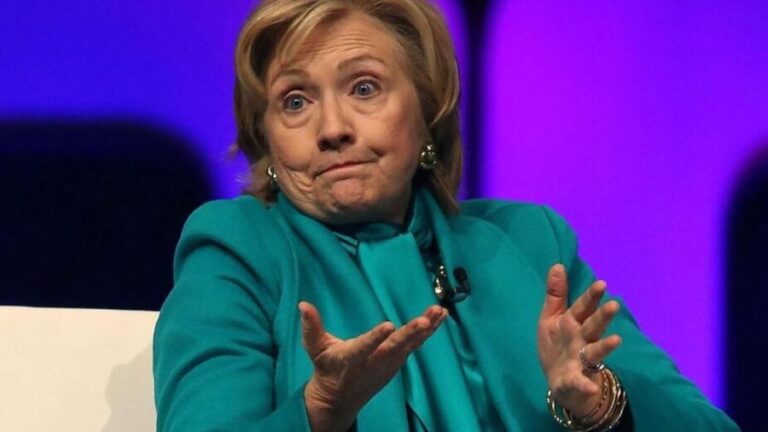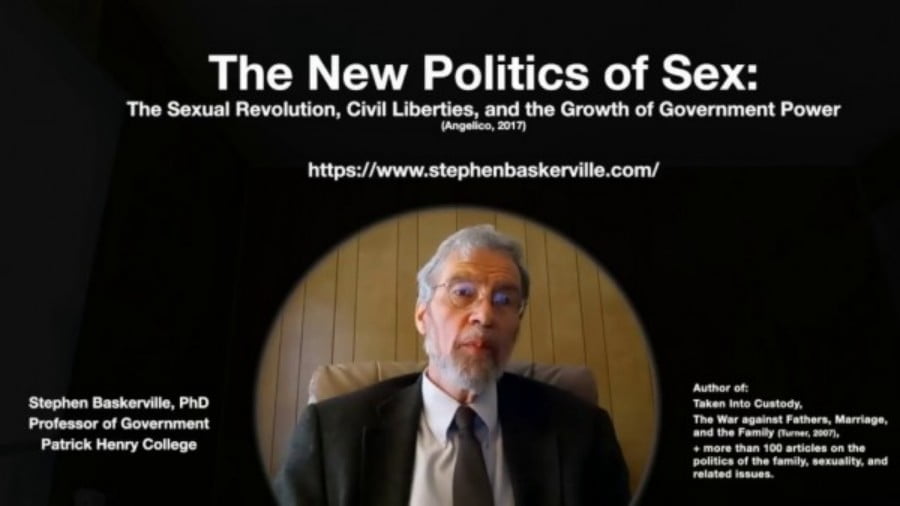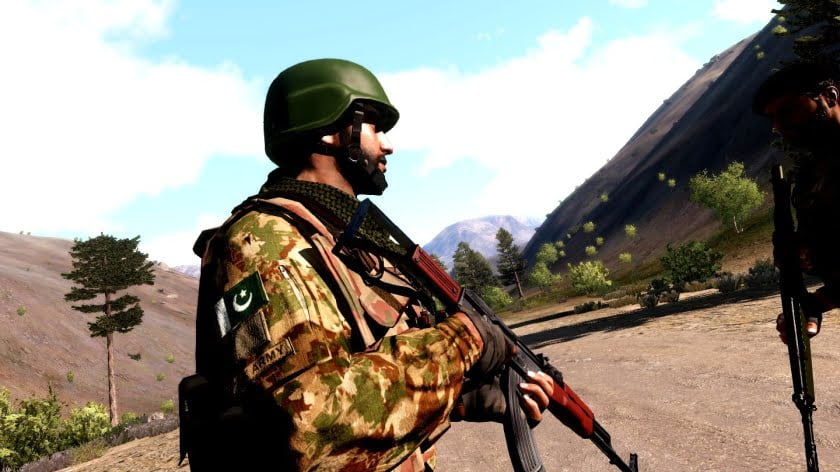All Against Erdogan: Turkey Will Keep Its Course Towards Russia and Syria In Any Situation
Turkey is approaching elections. If President Recep Tayyip Erdogan wins, he will get a government system revolving around him, on which he focused his entire career. If he loses, there are other options.
The main events in the state take place in the sphere of domestic policies. At the same time, Ankara continues to fight with the Kurds in Syria, challenging the positions of Iran, Russia and the United States and entering into the most unpredictable alliances.
The official representative of the ruling Justice and Development Party (AKP) Mahir Ünal stated: “According to public opinion polls, support for Tayyip Erdogan is expected at the level of 54 percent, the AKP up to 47 percent, in the upcoming elections”. In the early parliamentary elections on November 1, 2015, the AKP received 49.5 percent. The AKP’s optimistic forecasts are confirmed by all public opinion agencies. The “Dunya” newspaper compared the results of ten polls on the support of the parties at the end of May. The AKP has an average of 42 percent and its Republican People’s Party (CHP) competitor at 27 percent, but some measurements indicate that the party in power can gain less than 40 percent, which will not stand a chance of taking a majority of seats in Parliament.
Pre-Election Forecasts
Erdogan, according to surveys, has a chance to win the presidential race in the first round with a minimum legal limit of 50 percent plus one vote. In case of a second round, the candidate must gain a simple majority. The company Remres gives Erdogan an unpleasant prediction: in the first round, the president will receive 36.2 percent, in the second, 42.2. If in the second round the opposition nominates a single candidate, Erdogan’s margin will be minimal.
Early parliamentary and presidential elections in Turkey will be held on June 24, after which the amendment on the introduction of the presidential system of government will officially come into force. The race involves six candidates: incumbent President Recep Tayyip Erdogan, Muharrem Ince of the CHP, Meral Akşener of the opposition “Good Party”, Temel Karamollaoglu of the Happiness Party, Doğu Perinçek of the Patriotic Party, Selahattin Demirtaş of the Kurdish People’s Democratic Party. Before the parliamentary elections, the Supreme Electoral Commission accepted eleven political parties.
According to American analysts, under the general opinion of leading sociologists, Erdogan will be able to win the elections, but it will not be without alternatives. Two main reasons can play in favour of this: the internal economic instability and the unusual for Turkish domestic political life the unity of opposition candidates, which, given the differences in programmes, have one main goal, to legitimately prevent Erdogan from becoming a dictator. But no matter who wins, Turkey will face constant problems in relations with its Western allies, the EU and the US. According to American analysts, Erdogan’s victory and the AKP will aggravate them.
For incumbent President Erdogan, who together with his party has developed the current constitutional changes, the stakes of the upcoming vote are high. If he wins, he will receive the uncontrolled powers of the President with the prospect of power over the next decade. At the same time, the American experts agree that today Erdogan and his party have every opportunity to win the vote, but for the first time in 15 years of rule, the victory will not be so convincing. At the same time, even with the Parliament becoming a secondary body for state decision-making, the opposition will likely seriously expand its presence there.
The Islamist AKP was able to win the parliamentary elections for the first time in 2002, which was due to two factors. The victory was preceded by years of economic crisis, which undermined the legitimacy of the country’s ruling coalition in the eyes of the voters. Plus, the law requires that parties to receive at least ten percent for passage to the Parliament. Those who fail are deprived of the votes received, and those who have reached or exceeded the bar, divide them proportionally. This enabled the AKP to win a majority in Parliament in 2002 and in subsequent elections without the appropriate support of voters.
After these elections, the AKP and Erdogan took advantage of the failures and competitors’ mistakes, creating and destroying temporary political alliances based on the momentary conjuncture. Thus, in 2014, the AKP broke off the alliance with the Gulenists, who played a decisive role in their political victory in the early 2000s. Then the ruling party put forward a proposal for a coalition with the Nationalist Movement Party (MHP) to ensure the nomination of a package of constitutional reforms in 2017. As a result of this alliance, the AKP has the current level of support. And the defeat of the Gulenists was the result of the struggle for power and much more than the result of a change in the domestic political situation.
Erdogan’s main consideration in all his internal and external actions is the idea of maintaining his personal power at any cost. If he could secure the presidency with an alliance with the Kurds, and not nationalists, he would have made an alliance with them. Moreover, experts believe that the Kurdish factor is important in the election campaign. The Americans say that in the past Erdogan received four to five percent of the Kurdish votes. This time, such a level is unattainable for him. However, the Turkish president is not concerned with the Kurds (he will buy them to the extent he needs, as he did in the last parliamentary elections), but the nationalist electorate, which began to flow from the allied PND camp to the ranks of the Happiness Party, which was one of the reasons for the announcement for early elections.
Weakness of the Turkish Lira
The economy is an important cause for concern. The value of the Turkish Lira has fallen to record lows against the dollar and the Euro, inflation is high, and the President’s efforts to influence monetary policy have led to an outflow of international investors. The economy has led the AKP to the top, and now can deprive it of the power. Turkey’s fragmented opposition was able for the first time to unite (or make such an attempt) before the elections. Three main opposition parties, the NRP, the Happy and the Islamist “Felicity United” are in an informal alliance based on their desire to oust Erdogan. The platforms and ideologies of the parties are different for a stable coalition, but the level of the current cooperation is sufficient to give the AKP a fight and push the presidential vote to the second round.
This is the main challenge for the opposition. The Happy Party, founded by the HDP defectors, offers an alternative to nationalist voters, unhappy with the HDP coalition with the Erdogan party. Turkey’s oldest political party, the NRP, will rely on the traditional base of secular, liberal city voters, critical of the President. The Felicity Party reflects the Islamist ideology, which is also professed by the AKP, providing an alternative to religious voters who oppose Erdogan. Plus, all three parties will seek to get the support of twenty percent of the Kurdish population.
Thus, in the parliamentary elections no one from Erodgan’s opponents reset the score. In the event of his victory in the presidential race, the Parliament will remain the only force, albeit modest in terms of opportunities (without the authority to cancel the decrees of the head of state), capable of influencing domestic policies. None of the three coalition parties will receive an absolute majority, but together they can challenge the AKP in the Parliament. With enough votes, the opposition may try to collect a two-thirds majority to repeal the 2017 constitutional amendments, which is unlikely. The key issue of the balance of power in the Parliament and its ability to influence Erdogan’s policies as future President is the capability of the opposition to form a stable coalition in the legislature.
If the opposition reaches the goal in the presidential race, the second round of voting will take place on July 8. This is not an ideal scenario for Erdogan, but he does not guarantee victory to the opponents either. Three main opposition candidates, Meral Akşener of the “Good Party”, Temel Karamollaoglu of the Happiness Party and Muharrem Ince of the CHP build their campaign rhetoric mostly around economic issues. One of the main factors influencing the outcome of the upcoming elections is the level of uncertainty and insecurity. Erdogan has long positioned himself as a leader with unique skills to solve problems in the country, and continues to exploit the image of the saviour of the fatherland. The state of emergency, the repression of opponents in the judiciary, the army and the security forces and the media should facilitate the achievement of this task.
The state of emergency can provide the necessary recount in case of a problem with obtaining an absolute advantage. Western analysts in this regard indicate that Erdogan will continue to accuse the EU of interference in Turkish internal affairs, focusing on Brussels’s ban to conduct in Europe election campaigns among the Turkish diaspora. One can concluded that the results of the upcoming elections will not reduce the tension in relations with the US and the EU. In case of inconclusive results for Erdogan and his party in the elections, Brussels will question their legitimacy.
The latter will allow Erdogan to maintain his focus on maintaining constructive relations with Moscow in the military-technical relations, export of hydrocarbons and the nuclear programme, not to mention the development of bilateral trade and tourism, which is critically important for the Turkish economy. Experts believe that changes in Ankara’s foreign policy in the event of Erdogan’s defeat will not happen. They point out that any government or President of Turkey will have to take into account the economic realities and maintain the previous course towards Russia and Syria. It would be wonderful to believe this, if only to forget about the speed with which the vector of relations between Russia and the Ukraine has changed with a much greater level of interdependence and deep ties between them.
Fluctuations in Erbil
According to the Turkish General Staff, the army cleared about 400 square kilometres in Northern Iraq of soldiers of the Kurdistan Workers’ Party (PKK). Deputy Prime Minister Bekir Bozdağ said on June 4 that the republic could enter the Iraqi region of Kandil at any time, where the PKK camps and strongholds have been located for the last 35 years. The Minister of the Interior Süleyman Soylu announced on June 3 that the Turkish military was moving towards Kandil.
The PKK, since 1984, conducts an armed struggle for independence in south-eastern Turkey mostly populated by Kurds. Several thousand Turkish soldiers and hundreds of militants were killed after the conflict escalated in July 2015. Ankara considers the PKK a separatist terrorist organisation. The communiqués about the successes that no one can confirm are not only a tribute to the election race in Turkey itself. Edrogan is losing influence on the nationalist electorate and is trying to reverse the trend with the help of unsubstantiated statements.
The deal with Washington on the withdrawal of Kurdish advisors from the Syrian branch of the PKK from Manbij gave Ankara’s efforts a second wind. The same applied to the PKK’s opponents in Iraqi Kurdistan (IR). The government of the Kurdish Autonomy of Iraq demanded that the PKK soldiers leave the areas bordering Turkey to prevent escalation. In this case, the Barzani clan is trying to influence the presence of pro-Iranian groups in the IR, as advisors from the IRGC supervise the PKK. Tehran strengthened its influence in the region after the Barzani clan failed attempt to hold a referendum on independence. In addition to the leadership of the Patriotic Union of Kurdistan (UCS), he relies on the PKK.
The last statement of the representative of this structure is a nod in the direction of Ankara. Local authorities want to restore allied relations with the Turks. The Barzani clan intends to return the Turkish presence in the IR to its former level in order to weaken Tehran’s influence. Among other things, this shows that the recent negotiations on the concessions of the Barzani clan to the Iranian interests, which were led by the leaders of the largest Kurdish Special Services, Masrour Barzani of the KDP and Lahur Talabany of the PUK (he did this on direct instructions from Tehran) two weeks ago, ended in vain.
The issue of Kandil is raised by the Turks due to Iranian concessions to Turkish demands for the PKK withdrawal from Sinjar in May. In the East, one cannot give in. Tehran will almost certainly not go to meet the Turks against Kandil. And for the KPP there is nowhere to go after leaving their main mountain base. Kandil is not Afrin, the Turkish forces will have to fight in very difficult conditions. It is unlikely that Ankara will go for this. The logic of the election campaign, ambiguous by the results of the campaign, may lead Erdogan to decide to hold a “small victorious war”, but it has all the chances to become a failure, fatal in consequences for the Turkish President.
Iranians and Iraqi Shi’ites will not be satisfied with the role of outside observers in case of direct Turkish military intervention in the region. It is possible they will not join the Turkish army in a direct armed confrontation, but will provide the PKK with serious logistical support, the consequences for the Turkish military seem to be a little less regrettable than the war with the Iranians and their local allies. Thus, we can state the beginning of a mutual rapprochement between Ankara and the PDK, focused on the confrontation with Iran in northern Iraq.
Confused “Road Map”
The “road map” for the Syrian city of Manbij, agreed at the meeting between Turkish Foreign Minister Mevlüt Çavuşoğlu and US Secretary of State Michael Pompeo, will be applied in other parts of Syria. The head of the Foreign Ministry announced this at a press conference in Washington. Ankara and Washington will work on the parameters of the “road map” for the withdrawal of the Kurdish forces “People’s Self-Defense Forces” (SNA) from Manbij. Çavuşoğlu said that the President of Turkey approved the “road map”. The head of the Turkish Foreign Ministry expressed hope that the withdrawal of the SNA will be realised within six months.
In principle, the “road map” was to come into effect on June 4. At the same time, despite all the optimistic remarks of the Foreign Minister, there are serious doubts that the agreement on Manbij has been implemented to the extent that Ankara presents it. This means a departure from the Pentagon’s strategy of action in Syria, including the most negative consequences for the alliance between the Americans and the Kurds, which is negatively related to the Arab Sunni population east of the Euphrates and in northern Syria.
In the implementation of the “road map” Kurdish troops should move away from the border of Syria and Turkey into the interior of the country, which will allow the concentration of the “Forces of Democratic Syria” (SDS) in the troubled areas east of the Euphrates, but put the traditional areas of residence of the Kurds under attach by pro-Turkish forces. This changes all the US tactics in the Syrian course, demonstrating the rejection of stakes on the Kurds and the creation of a military-political alliance with Turkey. That is, the implementation of what the United States categorically refused about a year ago.
The collapse of their relations with the Kurds and the removal of the latter’s troops from the Arab Sunni areas to traditional residence places are inevitable because of the strengthening of the Turkish danger. Such a scenario is fraught with the completion of the American-Kurdish alliance and the fact that Washington will be faced with a shortage of loyal troops to the east of the Euphrates. Thus, it will not be able to replace the decline by pro-Turkish forces or local Arabs. The delivery of Afrin and the transfer of the Kurds out of the Euphrates testify to this.
Syrian Manbij remains the subject of dispute between Ankara and Washington. Joseph Biden, when he was Vice President of the United States in 2016, promised that the Kurdish fighters of the SNA, which are part of the SDS coalition, will leave this town after its liberation from the Islamic State (banned in Russia) militants and move to the eastern shore of the Euphrates. However, it is doubtful that the Pentagon agreed to this, especially given the fact that a month ago Ankara was warned against a possible attack on Manbij. During this time nothing crucial, which could have affected the position of the US military, has happened in the American-Turkish relations.
As far as one can understand, not everything is as smooth for Ankara as it tries to present. Most likely, the agreements were rigidly stipulated by the Americans with the execution of two conditions by the Turks. This is the refusal to purchase the S-400 Air Defense Systems from Russia and the freezing of the “road map” until the ISIS forces are finally defeated on the Iraqi-Syrian border, where a large-scale military operation involving the Kurds is taking place. If they are cheated, it will mean a serious change in the operational situation in northern Syria. But in practice, in the current conditions, the emergence of the US-Turkish alliance in Syria is extremely doubtful. This will be a challenge to Russian interests in Syria, to bring down the Astana negotiation format on the settlement and will not remain without an unpredictable reaction from Moscow. To risk this before the elections is too dangerous for Erdogan.
The article is based on materials from expert Yu. Schelgovin from the Middle East Institute






